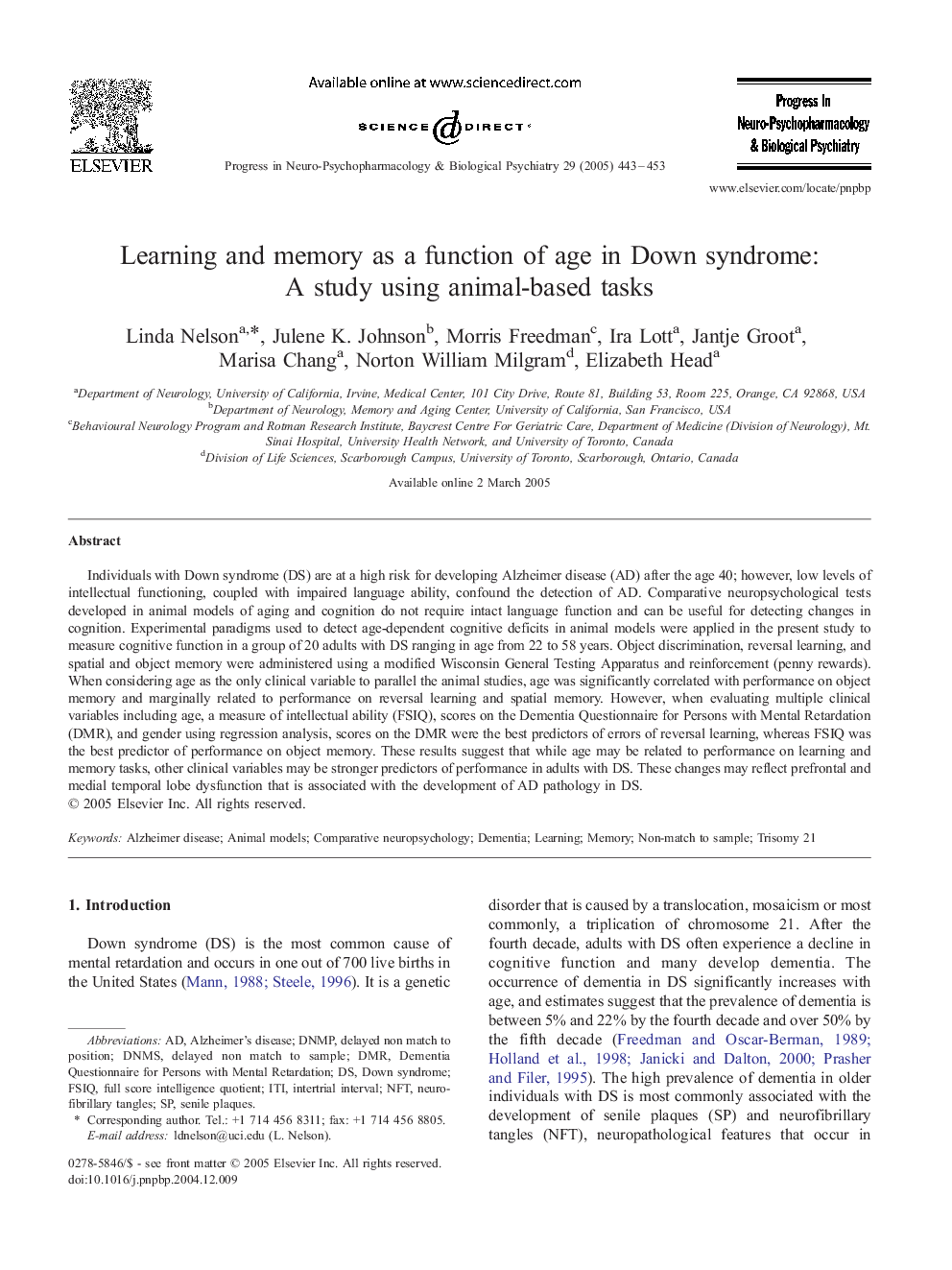| Article ID | Journal | Published Year | Pages | File Type |
|---|---|---|---|---|
| 9016348 | Progress in Neuro-Psychopharmacology and Biological Psychiatry | 2005 | 11 Pages |
Abstract
Individuals with Down syndrome (DS) are at a high risk for developing Alzheimer disease (AD) after the age 40; however, low levels of intellectual functioning, coupled with impaired language ability, confound the detection of AD. Comparative neuropsychological tests developed in animal models of aging and cognition do not require intact language function and can be useful for detecting changes in cognition. Experimental paradigms used to detect age-dependent cognitive deficits in animal models were applied in the present study to measure cognitive function in a group of 20 adults with DS ranging in age from 22 to 58 years. Object discrimination, reversal learning, and spatial and object memory were administered using a modified Wisconsin General Testing Apparatus and reinforcement (penny rewards). When considering age as the only clinical variable to parallel the animal studies, age was significantly correlated with performance on object memory and marginally related to performance on reversal learning and spatial memory. However, when evaluating multiple clinical variables including age, a measure of intellectual ability (FSIQ), scores on the Dementia Questionnaire for Persons with Mental Retardation (DMR), and gender using regression analysis, scores on the DMR were the best predictors of errors of reversal learning, whereas FSIQ was the best predictor of performance on object memory. These results suggest that while age may be related to performance on learning and memory tasks, other clinical variables may be stronger predictors of performance in adults with DS. These changes may reflect prefrontal and medial temporal lobe dysfunction that is associated with the development of AD pathology in DS.
Keywords
Related Topics
Life Sciences
Neuroscience
Biological Psychiatry
Authors
Linda Nelson, Julene K. Johnson, Morris Freedman, Ira Lott, Jantje Groot, Marisa Chang, Norton William Milgram, Elizabeth Head,
